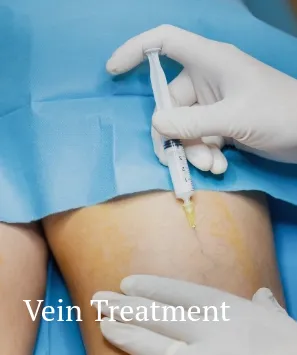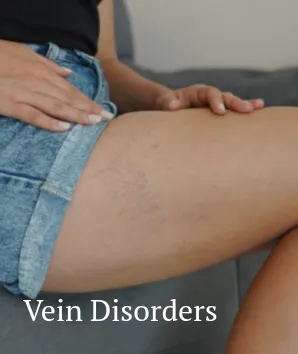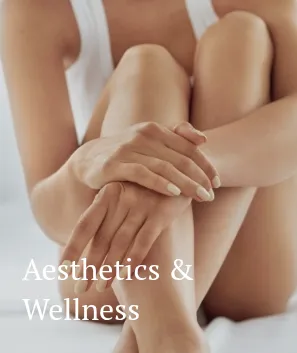Venous Ulcers / Leg Wounds
Venous ulcers, also known as stasis ulcers or venous stasis ulcers, are open sores that occur on the lower legs due to improper functioning of venous valves. These ulcers are a common complication of chronic venous insufficiency (CVI), a condition where the veins in the legs are unable to efficiently return blood to the heart. This leads to blood pooling in the lower extremities, increased pressure in the veins, and eventually, the breakdown of skin tissue.
Causes and Risk Factors
Venous ulcers are primarily caused by:
Chronic venous insufficiency
Deep vein thrombosis (DVT)
Varicose veins
Obesity
Prolonged standing or sitting
History of leg injuries or surgeries
Risk factors include age, family history, smoking, and a sedentary lifestyle. Individuals with diabetes or cardiovascular disease are also at higher risk.
Symptoms to Watch For
Common symptoms of venous ulcers include:
Swelling and heaviness in the legs
Dark red, purple, or brown skin discoloration around the ulcer
Itching and dry skin
Pain and discomfort around the affected area
An open sore with irregular edges, often located near the ankles
Foul-smelling discharge from the ulcer
If left untreated, venous ulcers can lead to severe infections and complications.
Diagnosis and Evaluation
Accurate diagnosis is essential for effective treatment. Our vein specialists use a combination of clinical evaluation and advanced diagnostic tools, such as:
Duplex ultrasound: To assess blood flow and identify vein abnormalities
Venography: An imaging test that provides a detailed view of the veins
Ankle-brachial index (ABI): To rule out arterial disease
During your consultation, we will review your medical history, conduct a thorough physical examination, and recommend appropriate diagnostic tests to determine the underlying cause of your leg wound
Treatment Options
Effective treatment of venous ulcers involves addressing the underlying venous insufficiency and promoting wound healing. Our comprehensive treatment approach includes:
Compression Therapy: The use of compression stockings or bandages to improve blood flow and reduce swelling.
Wound Care: Regular cleaning and dressing of the ulcer to prevent infection and promote healing. Advanced wound care products, such as hydrocolloid dressings and antimicrobial dressings, may be used.
Medications: Antibiotics to treat infection, if present, and topical ointments to enhance healing.
Minimally Invasive Procedures: Endovenous laser therapy (EVLT), radiofrequency ablation (RFA), and sclerotherapy to close abnormal veins and improve circulation.
Lifestyle Modifications: Recommendations for weight management, exercise, and elevating the legs to reduce venous pressure.
Surgical Interventions: In severe cases, surgical options such as vein stripping or vein bypass surgery may be necessary.
Prevention and Aftercare
Preventing the recurrence of venous ulcers is a crucial aspect of our care. We provide personalized aftercare plans, including:
Ongoing use of compression garments
Regular follow-up appointments to monitor vein health
Patient education on skin care and lifestyle changes
Guidance on proper leg elevation and exercise routine
Why Choose Us?
At VIP, our experienced team of vein specialists is dedicated to providing compassionate and comprehensive care for venous ulcers and leg wounds. We utilize the latest medical advancements and personalized treatment plans to ensure the best possible out comes for our patients.
Contact Us
Don't let venous ulcers affect your quality of life. Schedule a consultation with our vein specialists today and take the first step towards healthier legs.
Featured Services



Reveal your beauty & Restore your legs
Contact us to schedule Your Consultation Today!
From vein treatment to aesthetic and wellness, we'd be honored to serve you. Request your consultation today - and let us treat you like VIP!


